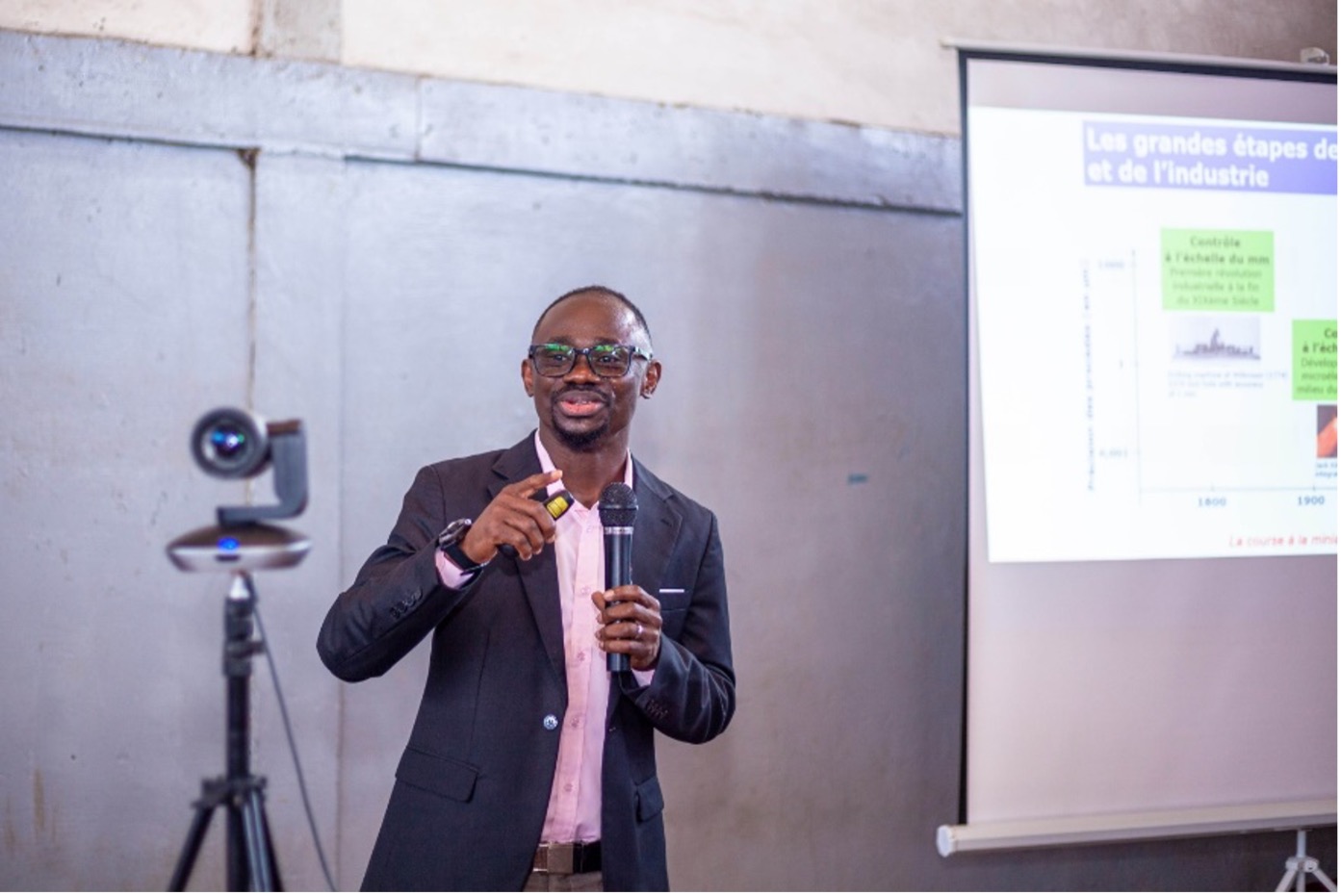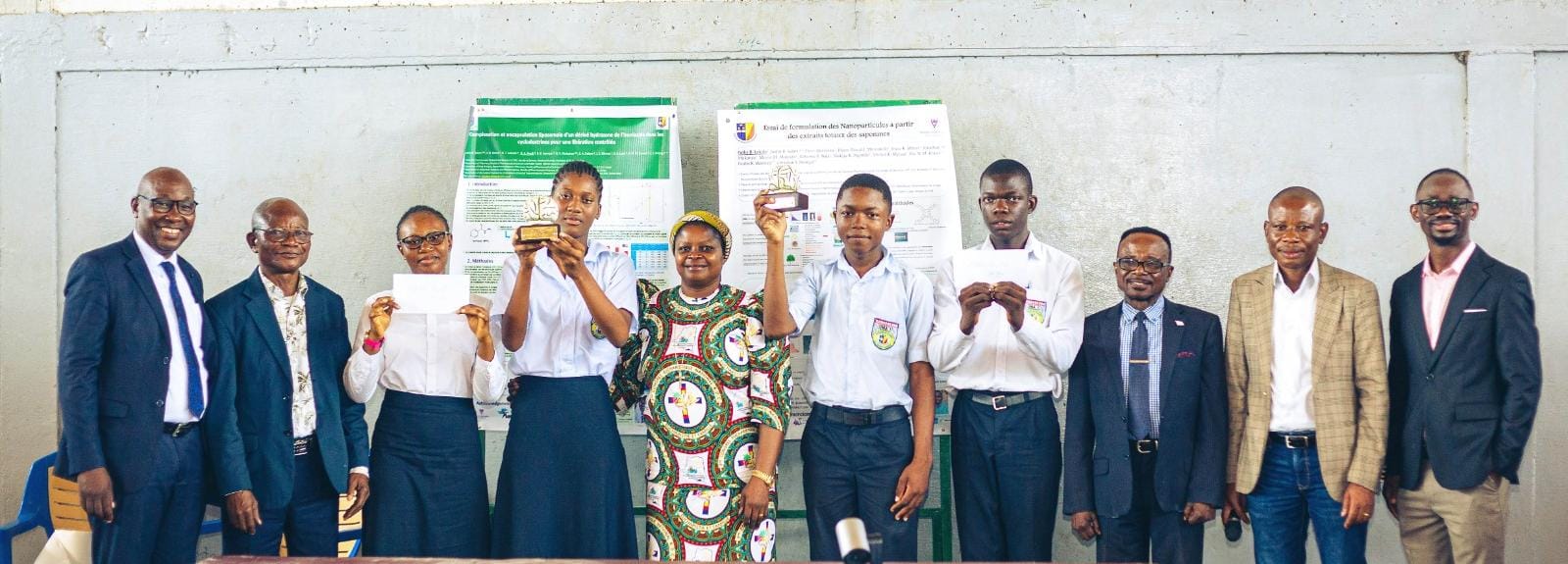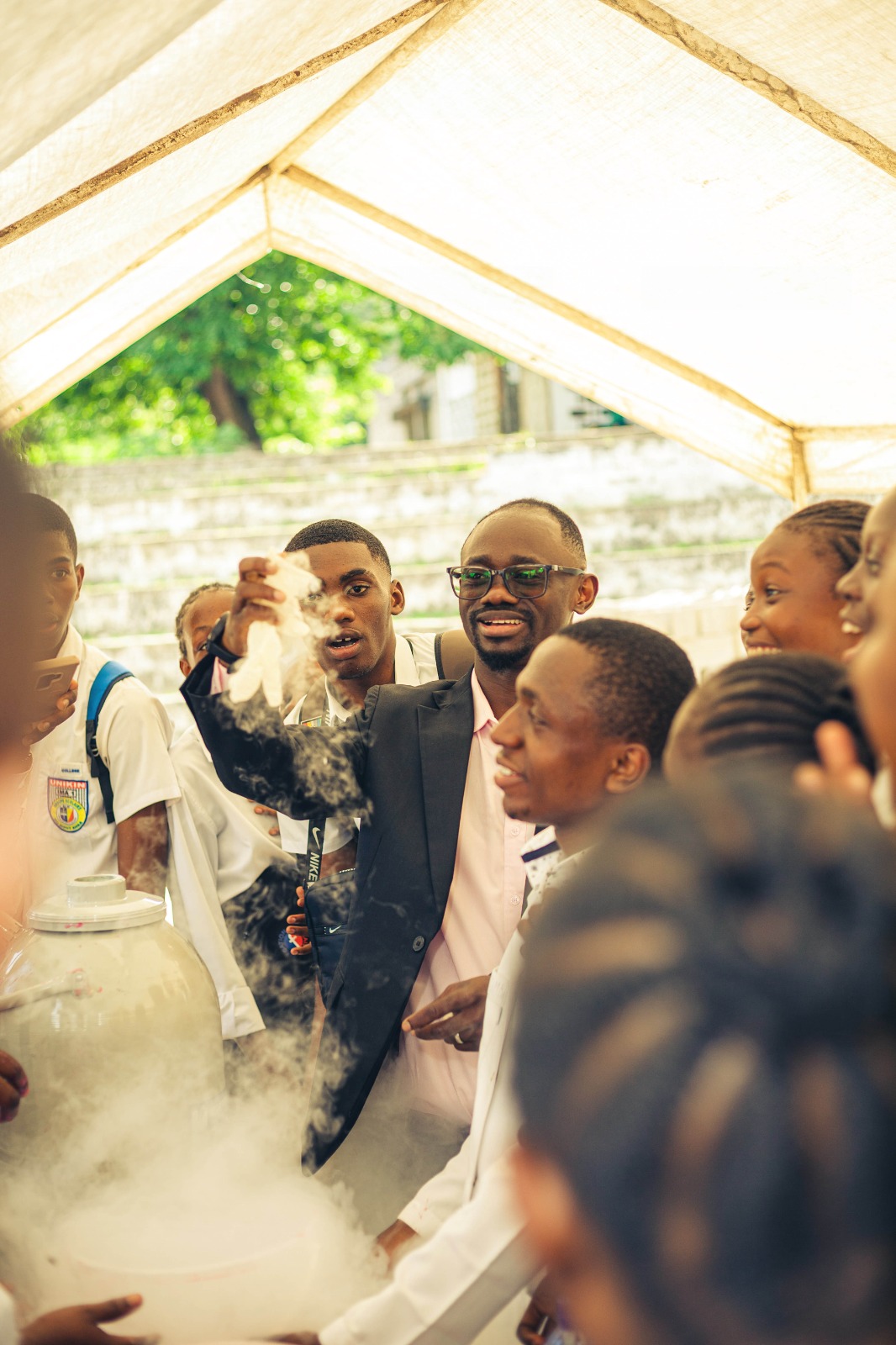News
The Inaugural Nano Brain Series
Nanotechnology has emerged as a cornerstone of modern research, revolutionizing various industries worldwide. In the Democratic Republic of the Congo (DRC), the exploration and adoption of nanotechnologies have been a growing focus in recent years, striving to leverage its potential for groundbreaking advancements in diverse fields. Despite the vast potential, the integration and widespread application of nanotechnology within the Congolese scientific landscape have faced multifaceted challenges, including limited infrastructure, resource constraints, and a scarcity of comprehensive educational initiatives.
In this context, the Nano Brain Series held at Mont Amba School Group in Kinshasa on 16 November 2023, led by Dr Christian I. Nkanga, an African Research Initiative for Scientific Excellence (ARISE) Fellow from the University of Kinshasa's Faculty of Pharmaceutical Sciences, alongside Professor Paulin Mutwale, their deputy dean of research, represents a significant push to raise awareness and education about nanotechnology in the Congolese scientific community. The event assumed a pivotal role in providing an insightful platform for educators, budding scientists, and local stakeholders.
Nanotechnology in the development of medicines
Through the theme "The use of nanotechnologies in the development of medicines: scientific demonstrations and experiments", the event explored the realm of nanotechnologies and their role in pharmaceutical product development.
The event comprised two distinct segments—a comprehensive plenary session and engaging outdoor activities. The plenary session, held in the school's conference room, attracted over 300 participants, including pupils, teachers, school directors, and representatives from three local media outlets (EducTV, Journal Universitaire, and RTNC).

Plenary keynote speech by Dr Nkanga
Dr Nkanga opened the plenary session with a keynote speech on the biomedical applications of nanotechnologies. Subsequently, three experimental demonstrations unfolded, showcasing the practical applications of high school-level science in addressing prevalent health challenges. These engaging displays encompassed preparing edible gummies, crafting nano-gels, conducting experiments illustrating supramolecular denaturation through eggs density testing, and demonstrating the production of molecular hydrogen from metals. The session culminated in an intellectually stimulating "nano-quiz," with distinguished pupils receiving recognition through the "Nano Brain Awards."

Small group photo with Nano Brain Awards winners
Transitioning to the outdoor arena, the activities extended to poster presentations and meticulously supervised experimental trials by ARISE research assistants and students. Complementing the plenary experiments were additional captivating demonstrations on thin-layer chromatographic (TLC) separation of dyes, the innovative creation of ice cream using liquid nitrogen, and illuminative dissolution and miscibility experiments.
Building local capacity in nanotechnology
This initiative stemmed from Dr Nkanga's ARISE project centred on harnessing biogenic nanomaterials derived from banana plant waste, marking a substantive contribution toward enhancing local capacity in Nanotechnology. Both Professor Mutwale and Dr Nkanga, members of the DR Congo Young Academy of Science (DRC-YAS), dedicated their collective efforts to propagate the sphere of nanoscience within the Congolese community. They emphasised the indispensable role of nanotechnologies in the realm of medicine and pharmacy, spanning diagnostics, therapeutics, and the production of immunological drug products.

Demo on freezing effect of liquid nitrogen on gloves
Dr Nkanga's role as the president of the DRC-YAS' creation committee, spearheading the establishment of the academy in 2020, underscores an enduring commitment to fostering scientific curiosity and innovation.
View photos from the Nano Brain Series here.
Related Articles